CYANOCOBALAMIN - ORAL
PHONETIC PRONUNCIATION: (SYE-an-oh-koe-BAL-a-min)
COMMON BRAND NAME(S): Vitamin B-12
GENERIC NAME(S): cyanocobalamin (vitamin B-12)
Uses
USES: See also Precautions section. Cyanocobalamin is a man-made form of vitamin B12 used to prevent and treat low blood levels of this vitamin. Most people get enough vitamin B12 from their diet. Vitamin B12 is important to maintain the health of your metabolism, blood cells, and nerves. Serious vitamin B12 deficiency may result in a low number of red blood cells (anemia), stomach/intestine problems, and permanent nerve damage. Vitamin B12 deficiency may occur in certain health conditions (such as intestinal/stomach problems, poor nutrition, cancer, HIV infection, pregnancy, old age, alcoholism). It may also occur in people who follow a strict vegetarian (vegan) diet.
How to use CYANOCOBALAMIN - ORAL
HOW TO USE: If you are taking the over-the-counter product to self-treat, follow all directions on the product package before taking this medication. If you have any questions, consult your pharmacist. If your doctor has directed you to take this medication, take as directed by your doctor. Take this medication by mouth, usually once daily with or without food or as directed by your doctor or the product package. Use this product regularly to get the most benefit from it. To help you remember, take it at the same time each day. The dosage is based on your medical condition, response to treatment, and laboratory tests. Consult your doctor or pharmacist for more details. There are many brands and forms of cyanocobalamin (vitamin B12) available. Read the dosing instructions carefully for each product because the amount of cyanocobalamin (vitamin B12) may be different between products. If you are using the liquid form of this medication, carefully measure the dose using a special measuring device/spoon. Do not use a household spoon because you may not get the correct dose. Some liquid brands may require you to shake the bottle well before each dose. If you are taking the extended-release tablets, do not crush or chew them. Doing so can release all of the drug at once, increasing the risk of side effects. Also, do not split extended-release tablets unless they have a score line and your doctor or pharmacist tells you to do so. Swallow the whole or split tablet without crushing or chewing. If you are taking the chewable tablet, chew the medication thoroughly before swallowing. If you are taking the rapidly-dissolving tablets, dissolve in the mouth with or without water as directed by your doctor or the product package. Vitamin C (ascorbic acid) can decrease the amount of vitamin B12 you absorb. Avoid taking large doses of vitamin C within one hour before or after taking this product. If your condition persists or worsens, or if you think you may have a serious medical problem, seek immediate medical attention.
Side Effects
Precautions
Interactions
Overdose
Images
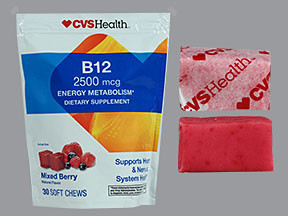
- color
- red-pink
- shape
- rectangle
- imprint
Reviews
Faq for CYANOCOBALAMIN - ORAL
Cyanocobalamin is a man-made form of vitamin B12, which is essential for the normal functioning of the brain, nerves, and blood cells.
Cyanocobalamin is commonly taken orally to treat vitamin B12 deficiency, which can occur due to various factors such as poor diet, certain medical conditions, or digestive disorders.
Cyanocobalamin is usually taken by mouth with or without food, as directed by a healthcare professional. It is typically taken once a day or as recommended.
Common side effects of Cyanocobalamin include mild diarrhea, nausea, vomiting, headache, or a feeling of swollen or warm skin. However, it is essential to inform a doctor if any severe side effects occur.
Cyanocobalamin may interact with certain medications such as antibiotics, colchicine, or medications that lower folic acid levels. It is important to inform a healthcare professional about all the medications being taken to avoid any potential interactions.
The effects of Cyanocobalamin may vary from person to person. Improvement in symptoms of vitamin B12 deficiency usually occurs within a few days to weeks of starting treatment.
Cyanocobalamin is usually considered safe for pregnant or breastfeeding women when taken in appropriate doses. However, it is advisable to consult with a healthcare professional before starting any new medication during pregnancy or while breastfeeding.
Cyanocobalamin can be prescribed to children under medical supervision. The dosage and duration of treatment should be determined by a healthcare professional based on the child's specific needs.
If a dose of Cyanocobalamin is missed, it should be taken as soon as remembered. However, if it is close to the next scheduled dose, it is advisable to skip the missed dose and continue with the regular dosing schedule.
Disclaimer
IMPORTANT: HOW TO USE THIS INFORMATION: This is a summary and does NOT have all possible information about this product. This information does not assure that this product is safe, effective, or appropriate for you. This information is not individual medical advice and does not substitute for the advice of your health care professional. Always ask your health care professional for complete information about this product and your specific health needs.
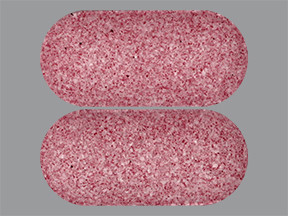
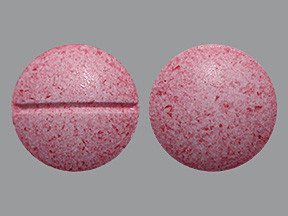
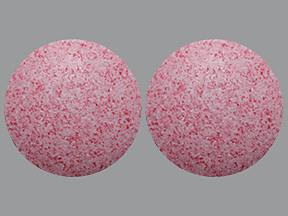


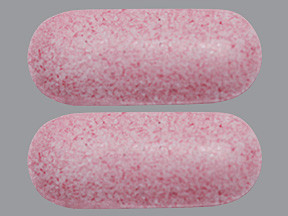
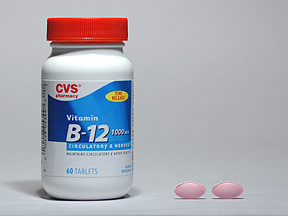
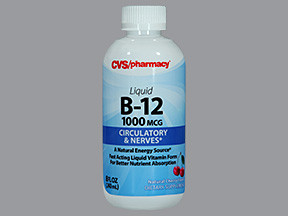
No Reviews Yet